The UK’s longest-established Fairtrade tea brand has become the latest to ditch synthetic sealants in its teabags, amid mounting consumer pressure on manufacturers to help cut down on plastic pollution.
Clipper Teas – which champions the unbleached teabag – hopes to introduce a new, fully biodegradable bag free of polypropylene, a sealant used across the industry to ensure bags hold their shape, by the summer.
Meanwhile a new national petition from the campaigning organisation 38 Degrees, calling on other brands to do the same, has attracted more than 125,000 signatures. Its first petition, directed at the UK’s largest tea brand, PG Tips, attracted 230,000 signatures in February – at which point it announced that its new eco-friendly pyramid teabags – made from a plant-based material that is 100% renewable and biodegradable – were about to go on sale in UK supermarkets.
Quick GuidePlastics and our throwaway society
Show
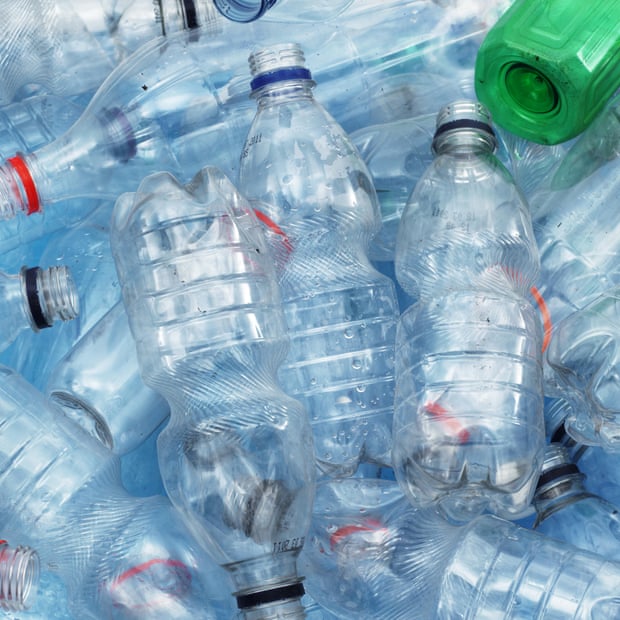
Why is plastic being demonised?
Since the 1950s, 8.3bn tonnes of plastic has been produced. Plastic is seen as a versatile, indispensable product, but the environmental impact is becoming more stark. Plastic is now so pervasive that recycling systems cannot keep up and the leakage into the environment is such that by 2050 plastic in the ocean will outweigh fish. In 2017 scientists found plastic fibres in tap water, and plastic has been found in the stomachs of sea creatures in the deepest part of the ocean. Most plastic waste ends up in landfill sites or leaks into the natural environment, where it is causing huge damage to eco-systems on land and sea, creating near permanent contamination. According to academics in the United States, by 2015, of all the plastic waste generated since the 1950s, only 9% has been recycled, with 12% incinerated and 79% accumulated in landfill sites or the environment.
Why are the supermarkets under fire?
Producers of plastic include retailers, drinks companies and supermarkets. Supermarkets create more than half of the plastic waste in the household stream in the UK. But they refuse to reveal how much they put on to the streets and how much they pay towards recycling it. Supermarkets are under pressure to reduce their plastic packaging and campaigners argue they have the power to turn off the tap. Much of the packaging they sell to consumers is not recyclable: plastic film, black plastic trays, sleeves on drinks bottles and some coloured plastic. The Recycling Association and other experts believe supermarkets could do much more to make packaging 100% recyclable and reduce the use of plastic.
Who pays to clean up the waste?
The taxpayer, overwhelmingly. UK producers and retailers pay among the lowest towards recycling and dealing with their waste in Europe. In other countries, the “polluter” is forced to pay much more. In France, a sliding system of charges means those who put more non- recyclable material on the market pay more.
What can shoppers do to help?
Supermarkets are under pressure, not least from the prime minister, to create plastic-free aisles. A growing number of zero-waste shops are springing up and consumers are being encouraged to ask for products to be sold without plastic.
Sandra Laville
The Observer reported in January that the Co-op, which sells 367 million teabags a year, is creating a fully biodegradable paper teabag for its own-brand Fairtrade 99 tea. The new bags are expected to go on sale by the end of the year. Amid growing concern about plastic waste, many consumers have been shocked to learn that most UK teabags are not fully biodegradable.
Twinings recently announced it is “actively developing and trialling fully biodegradable tea bags”, while Yorkshire Tea and Tetley confirmed they are looking at removing plastic from teabags. Yorkshire Tea hopes to make the switch after the end of trials in June.
Clipper Teas was the UK’s first Fairtrade tea brand – launched in 1994 – and is known for using only unbleached teabags and 100% natural ingredients.
Adele Ward, brand controller at Clipper, said: “To help minimise our impact on the environment our aim is to create a teabag paper made from all plant-based material. Not only will it be biodegradable, but it will remain unbleached and adhere to our organic principles. The development of this new substrate, which is completely GM free and 100% unbleached, means it is taking a little more time to finalise, but is a key priority. We hope to have a plastic-free teabag in operation by the summer.”
According to the trade body the UK Tea and Infusions Association, teabags account for 96% of the 165 million cups of tea drunk every day in the UK. “It will come as a shock to many tea drinkers that almost all of the 165 million cups of tea are adding to our burgeoning plastic crisis,” said Ben Craig, campaign manager at 38 Degrees.
“If Clipper and PG Tips can switch, there is no excuse for Britain’s other big tea companies like Typhoo – who must now live up to their environmental responsibilities.”
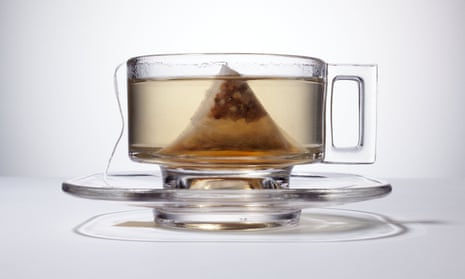
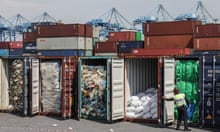
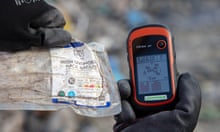
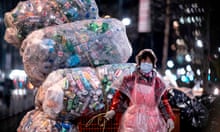
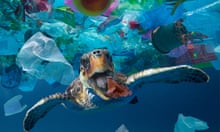



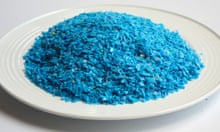


Comments (…)
Sign in or create your Guardian account to join the discussion